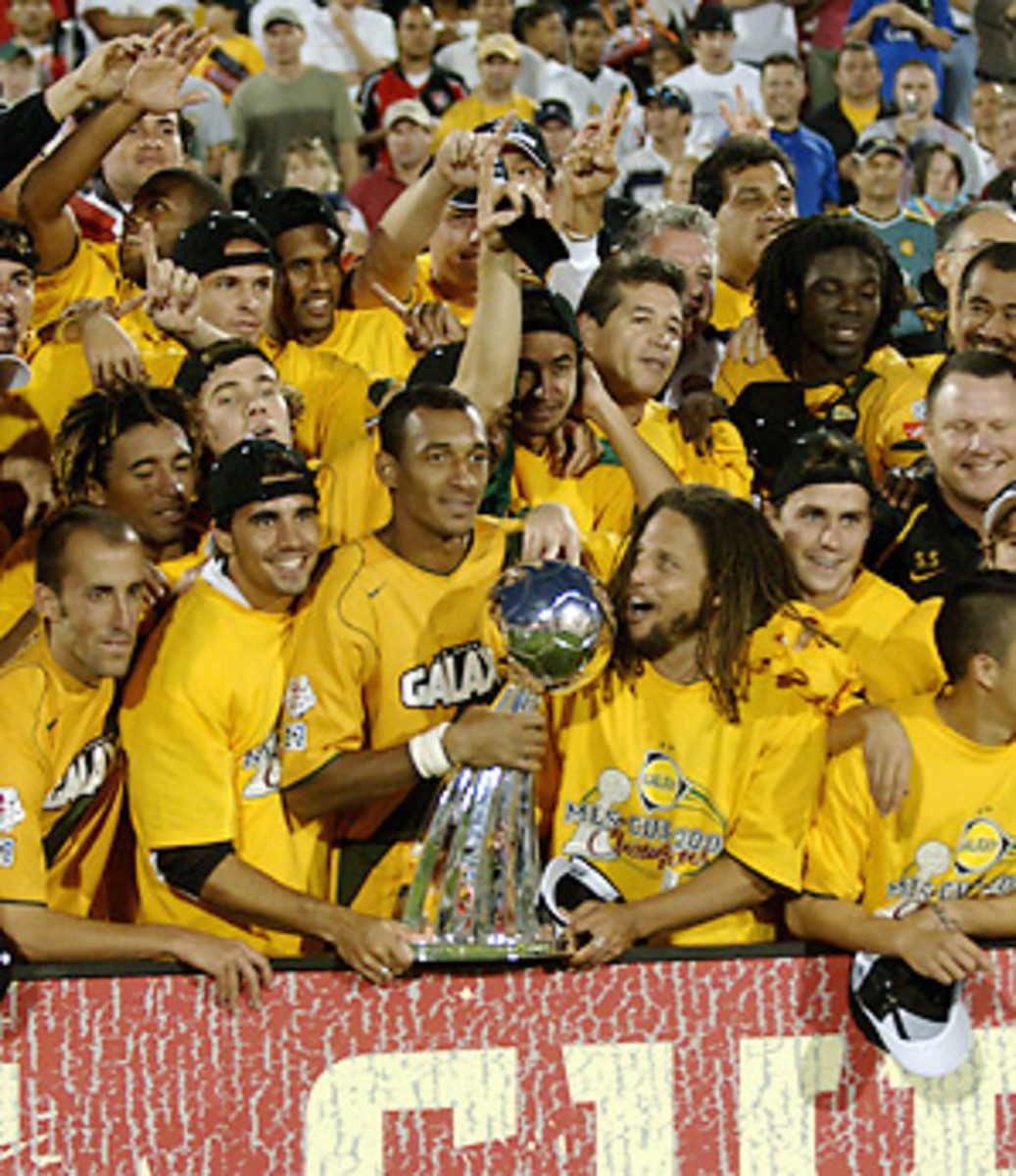How pervasive is MLS fluke factor?


There's plenty on the MLS plate this January, with negotiations for a new collective bargaining agreement slogging along and teams preparing for the MLS Player Combine that begins this weekend, and the SuperDraft to be hosted by expansion entry Philadelphia Jan. 14.
Yet it's never too soon to address where the league is and where it might be going, both on and off the field. There's been debate in league circles about adding a second Designated Player slot per team, as well as tweaking the playoff system to give greater reward to teams that perform best during the regular season.
Both topics address the issues of parity in different ways, and the financial impact of a DP is somewhat ambiguous, since men like Juan Pablo Ángel, Luciano Emilio and Freddie Ljungberg have had no perceptible impact on attendance but have certainly helped their teams. On the other hand, one could argue that David Beckham's competitive influence on the Los Angeles Galaxy -- even this past season, his best in MLS -- has been minor at best. At least he wasn't the distraction and oftentimes deterrent as in his first two years.
Examining the playoff format, which has been in use since 2004, raises questions. Is it time for the league's Competition Committee to assess and address a "fluke factor," or is a parity-driven league especially susceptible to funny bounces or streaks of fortune during crunch time, a.k.a. the playoffs?
In the past decade, four teams that finished with a .500 record or worse during the regular season reached the championship game. New England ('02), Los Angeles ('05), New York ('08) and Real Salt Lake ('09) were tough enough to overcome six months of mediocrity, and the Galaxy and RSL parlayed their postseason prowess into titles.
It's hard to believe that a regular-season (11-12-7) record can be misleading, yet RSL's solid playoff showings (two wins in regulation, two penalty-kick victories) last November seemed to be ample proof. And in '02, the entire Eastern Conference -- individually as well as collectively -- finished under .500, so the Revs (second place-finishers at 12-14-2) merely proved to be the best of a middling lot.
During MLS Cup '09, the Board of Governors discussed, among other issues, changing the championship-game format from a pre-designated host city to a final hosted by the higher-seeded playoff survivor. Setting aside the issues of selling tickets on short notice, weather, viability of markets, etc., the board had to consider if such a change would improve aesthetic as well as competitive allure of the league's showcase event.
A raucous home crowd would certainly ratchet up excitement and color, a downpour or snow flurries could add to the unpredictability but not necessarily the spectacle. In a one-off game, so goes the philosophy, the effects of luck are magnified, and so a team inferior on the day might still prevail if luck is on its side. Yet it can also be argued a higher-seeded team, on its home field and bolstered by its home crowd, more likely would persevere regardless of how treated by fate.
Once the new Philadelphia stadium is up and running in July at the latest, 10 of 16 teams will play in soccer-specific facilities. That's a good strike rate, and there also aren't any conflicts in RFK Stadium (D.C. United) and CommunityAmerica Ballpark (Kansas City) during November unless the Monster Truck Rally comes to town. Yet there are many more reasons -- logistics, weather, television, marketing and sponsorship activities -- that drove league officials to Monday announce they are leaving things as they are regarding MLS Cup.
"Following a detailed review and careful analysis of both options, we have elected to continue with a neutral-site format for MLS Cup 2010," MLS commissioner Don Garber said in a press release. "We believe this format will provide an exciting environment for our fans while also allowing the necessary planning time for our key constituents. We will continue to assess the possibility of playing MLS Cup at the home stadium of the higher-seeded team in the future."
Still, the league has refused to grant the same privilege to higher-seeded teams in the first round, choosing instead to grant each playoff qualifier a home game in a two-match format. While higher-seeded teams prevail more often than not, the format nonetheless gives a lower seed a chance to build an advantage the higher seed must overcome in its home game.
There are alternatives in case the league keeps the current setup of two-game conference semifinals and one-match conference finals leading up to the championship game, though reversing those formats -- giving each of the four semifinalists, rather than all eight qualifiers, a home game -- might prove illuminating.
MLS could decree that if a playoff game or series is tied, the team with the better regular-season record advances, as is the case in Mexico. It could incorporate the away-goals tiebreaker for two-game series.
There's parity -- a necessary nuisance perhaps -- and then there's parody, to which the fluke factor certainly contributes.
